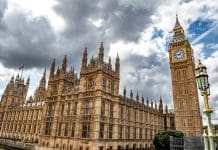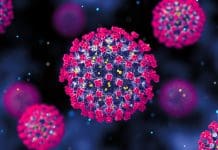Seven emerging AI technologies have been chosen for the next phase of the MHRA’s AI Airlock programme, aiming to improve early detection of diseases such as cancer and genetic eye disorders, while also streamlining hospital processes
The Medicines and Healthcare products Regulatory Agency (MHRA) has selected seven innovative AI healthcare technologies for the second phase of its AI Airlock programme. This initiative provides a controlled environment to test AI tools that could revolutionise patient care, including faster diagnostics for bowel cancer, earlier detection of skin cancer and genetic eye diseases, and enhanced hospital record-keeping and blood test interpretation. The programme aims to ensure the safety and effectiveness of these technologies before they are widely implemented in healthcare settings.
Trialling seven new AI healthcare technologies
Seven manufacturers developing novel AI healthcare tools have been selected for the second phase of the programme, which provides a controlled environment to trial AI tools safely.
Insights from testing real-world technologies through the Airlock will inform future MHRA work on AI regulation, including recommendations to the MHRA’s National Commission into the Regulation of AI in Healthcare.
The seven technologies include AI-powered clinical note-taking, advanced cancer diagnostics, eye disease detection, hospital stay summaries, and blood test interpretation.
Health Innovation Minister Zubir Ahmed said: “The AI revolution is here, and we want our NHS staff to be the first in the queue, armed with rigorously tested and evidenced clinical AI tools.
“The AI Airlock programme is a great example of how we can test new innovations thoroughly while still moving at pace, as we seek to deliver on our promise to shift healthcare from analogue to digital.
“Through our ten-year health plan, we will drive for the NHS to be the most AI-enabled healthcare system in the world.”
Lawrence Tallon, MHRA Chief Executive, said: “AI technologies offer important opportunities to transform healthcare, but they also create new regulatory complexities due to the rapid pace at which they are evolving.
“As the first country to create a dedicated regulatory environment, or ‘sandbox’, specifically for AI medical devices, we’re pioneering solutions to the unique challenges of regulating these emerging healthcare technologies.
“The first phase of AI Airlock demonstrated the value of close collaboration between innovators and regulators. I look forward to seeing the results of this new cohort and how their technologies will shape the next generation of safe, effective AI tools in healthcare.”
Phase two builds upon the pilot phase
Phase two of the Airlock programme follows the success of the pilot phase. Four reports highlight key insights from the initial cohort, including a programme report and three workshop reports. The reports will provide the blueprint for how the regulatory sandbox can accelerate safe AI innovation and support the Government’s vision for the NHS to be the world’s most AI-enabled healthcare system.
The Airlock programme brings together four innovative companies, including Philips, Newton’s Tree, OncoFlow, and Automedica Ltd, and has identified various potential regulatory improvements and recommendations to enhance patient safety and support innovation. These improvements include synthetic data validation, AI decision explainability, and innovative approaches to tackle emerging risks such as AI hallucinations.
Yinnon Dolev, Gen AI Product Owner at Philips Medical Systems, said: “Participating in the AI Airlock sandbox was a very positive experience. The chance for an R&D representative to impact the regulatory strategy with the regulator is almost unheard of.
“The interaction with the team and experts was exceptional. They provided invaluable insights and support, making the entire process smooth and productive. Meeting with the MHRA on a weekly basis throughout the pilot was also a catalyst for meaningful progress, expediting our development activities.”








